Glass-to-Metal Hermetic Seal Solution:Sealed Battery
Release time:2025-09-17
In today's high-tech world, sealed batteries play a pivotal role in powering a wide range of devices, from smartphones to electric vehicles. One essential technology that ensures the reliability and safety of these batteries is the glass-to-metal hermetic seal. In this article, we will explore the concept of sealed batteries, the role of glass-to-metal hermetic seals, and how these seals contribute to the longevity, efficiency, and safety of batteries.
What is a sealed battery?
-Can a sealed battery be charged?
-Can you vacuum seal batteries?
-Can a sealed battery be laid on its side?
The Differences Between Lead-Acid, Sealed and Lithium Batteries
-Which battery type is the most efficient?
-Are sealed batteries better?
What are lithium batteries
-Are lithium batteries sealed?
-How are lithium batteries made
-Are lithium batteries rechargeable
What uses lithium batteries
-What has a lithium battery
-Does ipad have lithium battery
-Does a laptop have a lithium battery
Do lithium batteries explode
-How to put out lithium battery fire
-How long can a lithium ion battery last
Why choose Spcera as your leading sealed lithium battery manufacturers?
-The role of glass-to-metal seals in battery applications
What is a Sealed Battery?
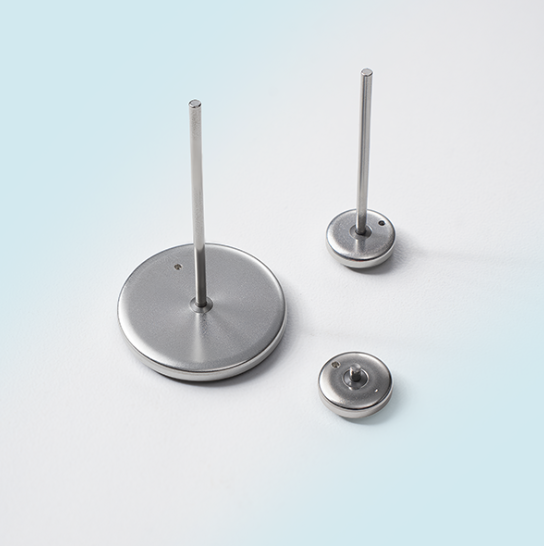
A sealed battery is a type of rechargeable or non-rechargeable battery that is designed to prevent leakage, contamination, and the release of harmful gases. It is sealed to ensure that the internal components, such as the electrolyte and electrode materials, remain protected from external influences like moisture and air.
Can a Sealed Battery Be Charged?
Yes, sealed batteries can be charged, depending on the battery type. Most sealed batteries are rechargeable and can be charged safely without compromising their performance. Sealed lead-acid (SLA) batteries, for instance, are commonly used in backup power applications and are designed to be safely charged in sealed conditions.
However, it’s crucial to follow manufacturer guidelines for charging sealed batteries, as overcharging or improper charging can lead to damage or reduced lifespan. Sealed lithium-ion batteries, for example, are often used in consumer electronics and electric vehicles, and they can be charged multiple times without causing leakage or degradation.
Can You Vacuum Seal Batteries?
Vacuum sealing batteries is not a common practice and is not recommended. While it may seem like an effective way to protect batteries from external elements, vacuum sealing could interfere with the battery's function. For instance, vacuum-sealing lithium-ion batteries can damage the internal structure or cause overheating due to improper ventilation.
Instead, manufacturers use glass-to-metal hermetic seals to ensure that the battery remains sealed while allowing for safe gas venting when necessary. These specialized seals help batteries maintain their integrity without compromising safety or performance.
Can a Sealed Battery Be Laid on Its Side?
Yes, sealed batteries can typically be laid on their side. The sealing technology ensures that the electrolyte and other internal materials stay in place even when the battery is oriented differently. However, it's important to avoid damaging the battery casing by applying excessive pressure, as this could compromise the seal. For example, in devices like laptops or smartphones, batteries are often installed in a horizontal position without any issues.
The Differences Between Lead-Acid, Sealed, and Lithium Batteries
When choosing a battery, understanding the differences between lead-acid, sealed, and lithium-ion batteries is crucial. Each type of battery has unique advantages and disadvantages based on the application and environment.
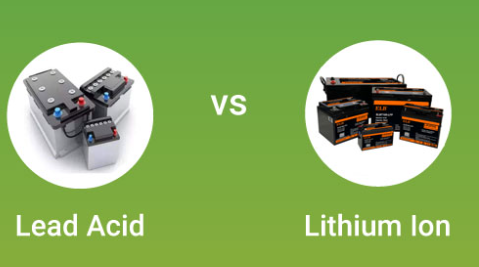
Which Battery Type is the Most Efficient?
Lithium-ion batteries are the most efficient in terms of energy density and longevity. They offer higher power output and are lighter than their lead-acid counterparts. This makes them ideal for portable electronics, electric vehicles, and renewable energy systems.
Lead-acid batteries, on the other hand, are less efficient in terms of energy density and have a shorter lifespan compared to lithium-ion batteries. However, they are still widely used in backup power systems, starting applications, and other industries due to their low cost.
Sealed batteries are generally classified based on their internal chemistry (such as lead-acid, lithium-ion, or nickel-cadmium). Sealed lithium-ion batteries tend to be more efficient than sealed lead-acid batteries, providing better energy output and longer battery life.
Are Sealed Batteries Better?
The term sealed battery refers to the type of battery construction that helps prevent leakage, contamination, and environmental damage. Whether a sealed battery is "better" depends on the application.
For portable devices, sealed lithium-ion batteries are the preferred choice because they offer high energy density, light weight, and longer life cycles.
Sealed lead-acid batteries may be better suited for backup power systems or applications where size and weight are not as critical.
In general, the use of a glass-to-metal hermetic seal in sealed batteries improves their safety, reliability, and overall performance, making them a better option for many applications.
What Are Lithium Batteries?
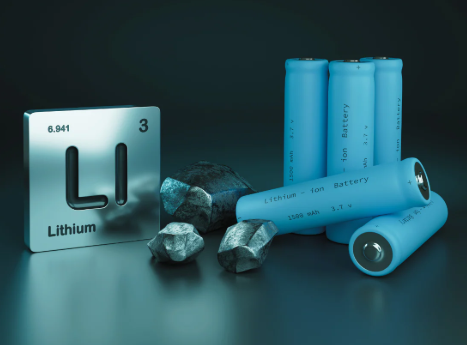
Lithium batteries are a type of rechargeable battery that uses lithium ions to store and release energy. These batteries are widely used in consumer electronics, electric vehicles, medical devices, and renewable energy systems due to their high energy density, long cycle life, and lightweight nature.
Are Lithium Batteries Sealed?
Yes, lithium batteries are typically sealed. This means the battery’s internal components are enclosed in a casing that prevents the release of gas or leakage of electrolytes. The glass-to-metal hermetic seal used in lithium-ion batteries ensures that the internal chemicals remain safely enclosed, preventing contamination and protecting the battery from external elements.
Are Lithium Batteries Rechargeable?
Yes, lithium batteries are rechargeable. They are designed to undergo multiple charge and discharge cycles without significant degradation. This is one of the main advantages of lithium-ion technology over other types of batteries, such as lead-acid batteries, which lose capacity faster over time.
How Are Lithium Batteries Made?
Lithium-ion batteries are made by assembling several critical components:
Cathode: A material made of lithium compounds (such as lithium cobalt oxide) that stores the battery's energy.
Anode: A material (typically graphite) that stores energy during charging.
Electrolyte: A liquid or gel that allows the transfer of lithium ions between the anode and cathode.
Separator: A non-conductive material that keeps the anode and cathode from coming into direct contact.
The entire assembly is enclosed in a sealed casing that uses glass-to-metal hermetic seals to protect the internal components and ensure the battery functions safely.
What Uses Lithium Batteries?
Lithium batteries power a wide range of devices and systems. Some common applications include:
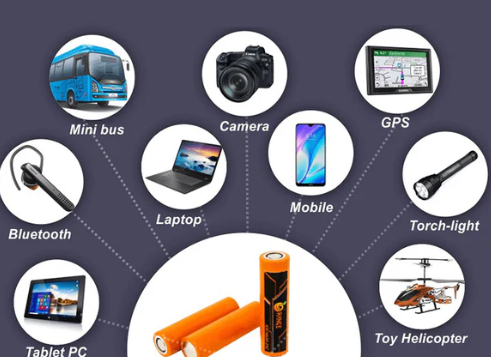
What Has a Lithium Battery?
Smartphones: Virtually all modern smartphones use lithium-ion batteries due to their compact size and long battery life.
Electric Vehicles (EVs): EVs rely heavily on lithium-ion batteries for energy storage and efficiency.
Laptops and Tablets: Portable computing devices like laptops and tablets are powered by lithium-ion batteries for long-lasting performance.
Does iPad Have a Lithium Battery?
Yes, all iPads use lithium-ion batteries. These rechargeable batteries provide the iPad with a lightweight, long-lasting power source to support intensive applications and high-resolution displays.
Does a Laptop Have a Lithium Battery?
Yes, most modern laptops use lithium-ion batteries. These batteries offer an excellent balance of energy density, lifespan, and charging time, making them ideal for powering portable computing devices.
While lithium-ion batteries are generally safe, they can potentially explode or catch fire under certain circumstances, such as:
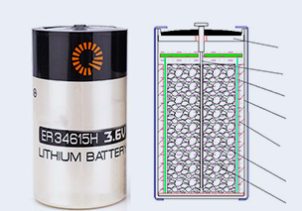
Overcharging
Exposure to high temperatures
Physical damage
However, the risk of explosion can be minimized by using high-quality batteries and adhering to proper charging guidelines.
How to Put Out a Lithium Battery Fire?
In case of a lithium battery fire, it is important not to use water, as it can react with the battery's chemicals and cause more harm. The safest way to extinguish a lithium battery fire is to use a Class D fire extinguisher designed for metal fires or to smother the flames with sand.
How Long Can a Lithium-Ion Battery Last?
A lithium-ion battery can last between 3 to 10 years, depending on the quality of the battery and usage conditions. Proper care, such as avoiding extreme temperatures and deep discharges, can extend the battery’s lifespan.
Why Choose Spcera as Your Leading Lithium Battery Manufacturer?

When choosing a lithium battery manufacturer, it's essential to work with a company that specializes in advanced technologies like glass-to-metal hermetic seals. Spcera is a leading manufacturer that offers top-notch lithium batteries with enhanced safety features, longevity, and performance. Their commitment to high-quality materials and innovative sealing technologies ensures that each battery is both safe and efficient.
In addition, Spcera’s lithium-ion batteries are designed for a wide range of applications, from consumer electronics to renewable energy systems, providing customers with reliable and long-lasting power solutions.
The role of glass-to-metal seals in battery applications
1.Prevents Leakage: Glass-to-metal seals create an airtight, watertight barrier that prevents the leakage of chemicals or gases from the battery.
2.Enhances Safety: They help avoid risks like thermal runaway, contamination, and corrosion by maintaining the integrity of the internal components.
3.Temperature Resistance: Glass-to-metal seals can withstand extreme temperatures, ensuring battery performance in harsh environments.
4.Long-Term Durability: These seals protect the battery from external elements, extending its lifespan and reliability.
The glass-to-metal hermetic seal plays a critical role in ensuring the safety and efficiency of sealed batteries, especially lithium-ion batteries. As technology continues to evolve, these advanced sealing solutions will remain essential for developing high-performance batteries that power the devices we rely on every day. Whether for smartphones, electric vehicles, or backup power systems, choosing the right sealed battery can make all the difference in performance and safety.






